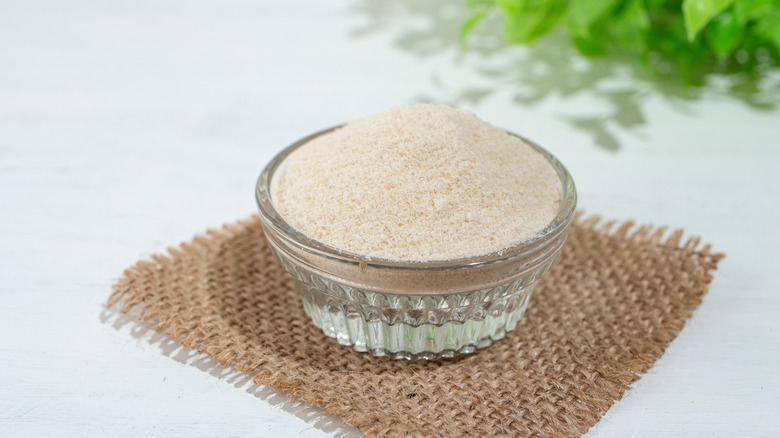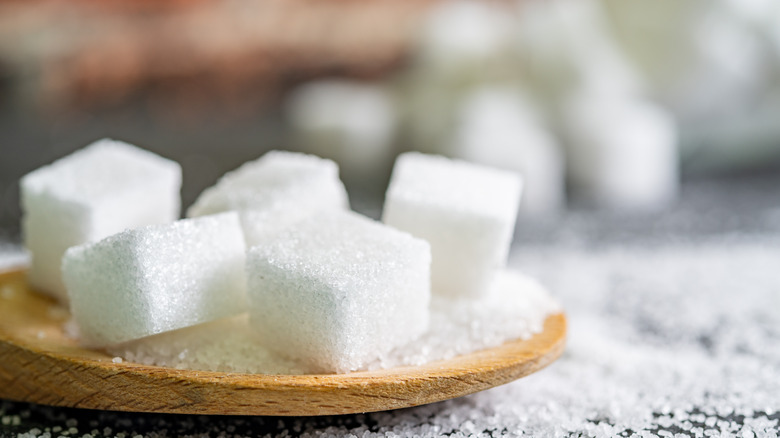Added Sugars Vs. Natural Sugars: What's The Difference?
Everyone's got an opinion of sugar. Sure, it's delicious and makes you feel great when you eat or drink it, but too much and things start getting unhealthy very quickly. Guardians stop kids from having too much of it, media outlets are obsessed with analyzing low-sugar diets, and people seem to have a particularly dark attitude towards high fructose corn syrup and other added sugars.
Sugar itself has been classified by many as either "natural" or "added," which refers to the source that the sugar has come from. Although various proponents argue that certain kinds of sugar are unhealthier than others, what truly matters to overall health (particularly in the realm of weight gain/loss) is just the total amount of sugar consumed, per Harvard University. According to the FDA, food and drink in the United States are required to list their added sugar content and their total sugar content in order to better inform the public about just how much sugar they are consuming.
The nuanced differences
The American Heart Association and the FDA define natural sugars as any sugars that are found naturally in foods; this includes things like fruit (fructose) and milk (lactose). Added sugars are defined as sugars that are artificially added to a product during its processing or preparation. Sugars and products that contain sugars that are added for flavoring and any other reasons, even if the products themselves contain natural sugars, are listed under added sugars.
According to Integris Health, added sugars are referred to as "empty calories" because they do not come with the added nutritional benefits that typically accompany natural sugars. For instance, when choosing between a fruit and a fruit juice, the fruit will come with vitamins, nutrients, and fiber, as well as the sugar, found naturally in the fruit. In contrast, the fruit juice will contain less nutritional value while still retaining the same (or even having a higher) sugar content. Again the overall sugar content is what matters, but it's also smart to be mindful of what you're consuming your sugar with.

